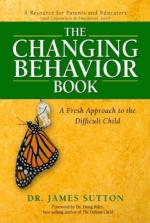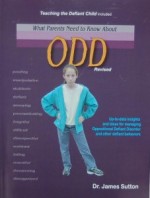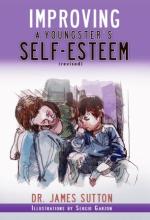A Foster Kid’s Dilemma: Wo Gets the Life Raft? (Shenandoah Chefalo)
What happens when youngsters have to make “grown-up” decisions regarding their own welfare? Former foster youth and author, Shenandoah Chefalo, shares this eye-opening, candid account of such an experience and what she learned from it.
……………………………………
 Writing for my blog is sometimes problematic for me. I try to be as transparent as possible and talk about the things that are truly affecting my life in the moment. I want it to be honest, of course, but sometimes that means discussing emotions and feelings that are difficult or painful to put into words.
Writing for my blog is sometimes problematic for me. I try to be as transparent as possible and talk about the things that are truly affecting my life in the moment. I want it to be honest, of course, but sometimes that means discussing emotions and feelings that are difficult or painful to put into words.
An Unexpected Answer
Recently, I was at an event and a woman asked a question that I hear often: “How did you overcome the abandonment of your mother?” My answer is burdensome and often shocking for audiences. The truth is, I never felt abandoned by my mother. Instead, I felt that I had abandoned her.
I had spent much of my childhood taking care of my mother, worrying about her, and making sure she was okay. When I was 13, she disappeared for a few days, then a few weeks. It wasn’t shocking to me; it was my “normal.”
When she still hadn’t reappeared, and my grandmother was going to be evicted from her housing, I knew I had to call social services. It was a difficult call for me to make; one that I would wish, time and time again, that I hadn’t made. Making that call always felt like I was watching a life raft for one float by, and I selfishly took it for myself.
When people hear this story, I can see a bit of shock come across their faces. It is difficult to put into words the loyalty I felt for my mother, and the betrayal I carry in my heart. As an adult, I cognitively understand my decision, and most do, also, but the betrayal I feel I caused hasn’t lessened.
 A Matter of Loyalty
A Matter of Loyalty
After the most recent presidential election results started coming in, I was struck with the notion of loyalty and how the weight of that emotion can be viewed, oftentimes confused for betrayal. As defined, loyalty is a strong feeling of support or allegiance to someone or something. It is a feeling or attitude of devoted attachment and affection. As a society, it is a trait we hold in high regard. In fact, any sign of disloyalty is often met with cries of one not being patriotic, a traitor, a crybaby, or various four-letter expletives.
And, that is why, after not seeing my birth mother for over 27 years, I still have feelings of disloyalty toward her and feel as I am the one who betrayed her. Abandonment was never my trigger or emotion. It is also why I have difficulty discussing those feelings; any sign of estrangement or retreat creates feelings (and brings accusations) that I was wrong in my decision to save myself.
Complicated
These emotions are complicated when children enter foster care; old families, new families, changing families … the feelings and questions come to the surface:
How can you be loyal to everyone? Can you ever?
Whom do you betray?
How do you protect yourself?
Is it ever OK to be disloyal? If so, who decides who gets the life raft?
Sometimes you just need to pick up the phone.
Shenandoah Chefalo is an advocate and a former foster youth. She is the author of the memoir, Garbage Bag Suitcase, and co-founder of Good Harbor Institute, an organization focused on ensuring sustainable, implemented trauma care within organizations and individuals. You can learn more about her and her work at www.garbagebagsuitcase.com or www.goodharborinst.com
Share this:
- Click to email a link to a friend (Opens in new window)
- Click to print (Opens in new window)
- Click to share on Facebook (Opens in new window)
- Click to share on LinkedIn (Opens in new window)
- Click to share on Twitter (Opens in new window)
- Click to share on Tumblr (Opens in new window)
- Click to share on Pinterest (Opens in new window)
April 10, 2017 Posted by docspeak | adversity, Anxiety and Depression, Compassion, courage, Difficult Child, Educators, family, Healthy living, Human Interest, Inspirational, Parents, Resilience, Self-esteem, Stress | A Foster Kid's Dilemma: Who Gets the Life Raft, abandonment, childhood trauma, difficult decisions, emotions of foster youth, feelings ad questions about foster care, foster care, foster youth, foster youth advocate, Garbage Bag Suitcase, issues of foster kids, loyalty versus betrayal, parental abandonment, Shenandoah Chefalo, tough choices | Leave a comment
About This Site
 This blog, It’s About Them, was founded in 2006 by child and adolescent psychologist, Dr. James Sutton. Content will vary, but the message here promotes courage, kindness, vision and the powers of the human spirit in ourselves and our children. Dr. Sutton can be reached at james78064@yahoo.com.
This blog, It’s About Them, was founded in 2006 by child and adolescent psychologist, Dr. James Sutton. Content will vary, but the message here promotes courage, kindness, vision and the powers of the human spirit in ourselves and our children. Dr. Sutton can be reached at james78064@yahoo.com.
Since Dr. Sutton is now mostly retired, this website is also the primary contact for Friendly Oaks Publications, founded and operated by Dr. Sutton for 30 years. The email address of the publishing company is friendlyoakspublications@yahoo.com.
………………………
Books by Dr. James Sutton
Below are the covers of some of the books written by Dr. Sutton and published by Friendly Oaks Publications. Paperback books are listed on the left; e-books on the right. Contact Dr. Sutton at either of the email addresses above for more information regarding any of these publications.
BOOKS






Categories
- ADHD
- adversity
- Affirmation and Recognition
- anger
- Anxiety and Depression
- Communication
- Compassion
- confidence
- Counselors
- courage
- Difficult Child
- Discipline
- Divorce Issues
- Educators
- family
- Healthy living
- Human Interest
- Humor
- Inspirational
- Integrity
- Law & Justice
- Links
- Parents
- patriotism
- Resilience
- Self-esteem
- Sleep Issues
- Special Occasions
- Stress
- Success Strategies
- Uncategorized
- veterans
 Suscribe to this Blog
Suscribe to this Blog
E-BOOKS






Archives
- July 2022
- December 2021
- September 2021
- August 2021
- April 2021
- February 2021
- January 2021
- December 2020
- September 2020
- August 2020
- June 2020
- May 2020
- April 2020
- February 2020
- December 2019
- October 2019
- September 2019
- August 2019
- July 2019
- June 2019
- April 2019
- March 2019
- February 2019
- January 2019
- November 2018
- October 2018
- September 2018
- August 2018
- July 2018
- June 2018
- May 2018
- April 2018
- March 2018
- February 2018
- January 2018
- December 2017
- November 2017
- October 2017
- September 2017
- August 2017
- July 2017
- June 2017
- May 2017
- April 2017
- March 2017
- February 2017
- January 2017
- December 2016
- November 2016
- October 2016
- September 2016
- August 2016
- July 2016
- June 2016
- May 2016
- April 2016
- March 2016
- February 2016
- January 2016
- November 2014
- October 2014
- August 2014
- April 2014
- March 2014
- October 2013
- August 2013
- June 2013
- May 2013
- March 2013
- December 2012
- October 2012
- August 2012
- June 2012
- April 2012
- March 2012
- February 2012
- January 2012
- December 2011
- November 2011
- October 2011
- September 2011
- August 2011
- July 2011
- May 2011
- April 2011
- March 2011
- February 2011
- January 2011
- December 2010
- November 2010
- October 2010
- September 2010
- August 2010
- July 2010
- June 2010
- May 2010
- April 2010
- March 2010
- February 2010
- January 2010
- December 2009
- November 2009
- October 2009
- September 2009
- August 2009
- July 2009
- June 2009
- May 2009
- April 2009
- March 2009
- February 2009
- January 2009
- December 2008
- November 2008
- October 2008
- September 2008
- August 2008
- July 2008
- June 2008
- May 2008
- April 2008
- March 2008
- February 2008
- January 2008
- December 2007
- November 2007
- October 2007
- September 2007
- August 2007
- July 2007
- June 2007
- May 2007
- April 2007
- March 2007
- February 2007
- January 2007
- December 2006
- November 2006
- October 2006
- September 2006
- August 2006
- July 2006
- June 2006
Meta